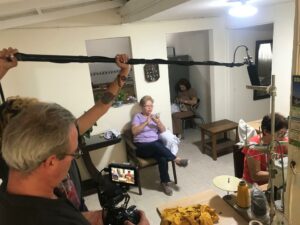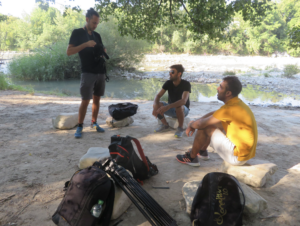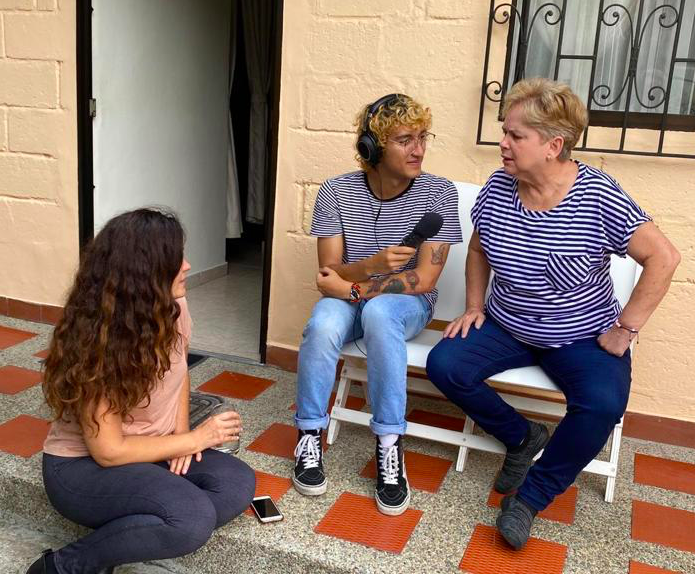Polina visits Colombia to interview transnational family members
One of the researchers from the French team, Polina Palash, traveled to Colombia to continue work on a documentary started in Southern France with the producer Luc Thauvin on the inter-generational care arrangements within a Colombian transnational family. This is one of the ethnographic case studies the French team are developing.
Polina interviewed several members of this family in Medellín and Bogota. While in the Colombian capital, she also interviewed four other families with family ties in France and Spain. The family members in France and Spain had already been interviewed in Europe by Polina and colleagues from the Spanish team of the Transnational Families in Europe project.

Assaf continues work on ethnographic film
Between 2015 and 2018, a Yezidi group from northern Iraq gradually settled in the Drôme valley; it is mainly composed of the extended R. family that brings together about 100 people and three generations spread out in different localities of the valley. But the R. family is more widely part of a transnational migratory system linking France, Iraq, Germany and the Netherlands. The ethnographic approach is based on our meeting with Burhan, who has been living in Crest since 2017, and who constitutes the main thread of our research. Through his story, from his point of view and his place in the family, we study the evolution of forms of solidarity within the Roto family in relation to the issue of work. In other words, we are interested in the individual and collective stakes linked to the insertion on the labour market in the context of exile to understand how this influences the forms of mutual aid and solidarity, and participates in the recomposition of intergenerational relations.
Entre 2015 et 2018, un groupe yézidi originaire du nord de l’Irak s’est progressivement installé dans la vallée de la Drôme ; il est principalement composé de la famille R., une famille élargie qui rassemble une centaine de personnes et trois générations réparties dans différentes localités de la vallée. Mais la famille R. s’inscrit plus largement dans un système migratoire transnational reliant la France, l’Irak, l’Allemagne et les Pays-Bas. La démarche ethnographique repose sur notre rencontre avec Burhan, installé à Crest depuis 2017, qui constitue le fil conducteur de notre recherche. À travers son parcours, à partir de son point de vue et de sa place dans la famille, nous étudions l’évolution des formes de solidarité au sein de la famille Roto en lien avec la question du travail. Autrement dit, nous nous intéressons aux enjeux individuels et collectifs liés à l’insertion sur le marché du travail en contexte d’exil pour comprendre en quoi cela influence les formes d’entraide et de solidarité, et participe in fine à la recomposition des rapports intergénérationnels.


